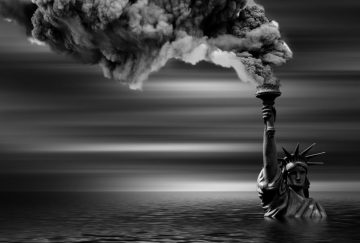Geoff Mann in the Boston Review:
 Though earth scientists have yet to agree on the “golden spike” that marks its end, we have been told that the Holocene, the geological time-period from the last glacial period until now, is over. We live in a new era: the Anthropocene, an age in which humanity’s geological impacts are shaping not just the trajectory of life on the planet, but the future of the planet itself.
Though earth scientists have yet to agree on the “golden spike” that marks its end, we have been told that the Holocene, the geological time-period from the last glacial period until now, is over. We live in a new era: the Anthropocene, an age in which humanity’s geological impacts are shaping not just the trajectory of life on the planet, but the future of the planet itself.
But while social science has embraced the Anthropocene, questions concerning its causes, dating, and political and scientific implications are currently subject to energetic—even fiery—debate. Most widely recognized is the problem that the “Anthropocene” attributes to “humanity” as a whole responsibility for catastrophic interference in the Earth system when, in fact, the largely destructive transformation named by the “Anthropocene” is the result of a relative minority of humanity. If accelerating climate change, biodiversity loss, and nuclear radiation are among its signal indicators, it is clear that it is the direct result of the political-economic organization of the Earth’s richest peoples and regions. This is the reason Jason Moore and others have argued instead for the uglier but more accurate term Capitalocene.
More here.
